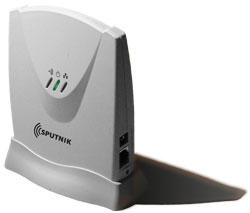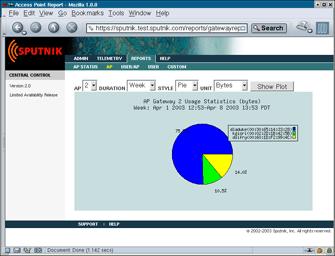

Interrupt request handlers have changed their return values in the 2.5 tree to handle certain error conditions involving peripheral devices better. One result of this is that many, many drivers were broken at the source level and had to be fixed. For drivers included in the official kernel source, this was a repetitive, undesirable chore, but still feasible. Countless external drivers, however, can be fixed only when someone notices they no longer work; although proprietary drivers may take much longer than that. This is par for the course of the kernel development cycle, though such a large change is never undertaken lightly.
Bartlomiej Zolnierkiewicz is officially at the top of IDE maintainership. Andre Hedrick has (for the moment at least) stepped aside to focus on Serial ATA (SATA) and vendor chipset issues. Alan Cox remains the official liaison to Linus for all IDE patches. Andre also has decided to release all his kernel contributions retroactively under a dual license, instead of under only the GNU General Public License. The second license is now Lawrence E. Rosen's Open Software License.
Benjamin Herrenschmidt forked the RADEON Framebuffer code, when Ani Joshi, the official maintainer, failed to apply patches or respond to e-mails. With Ani's disappearance, Benjamin collected a variety of patches that had been floating around and released a new RadeonFB update. As of early May 2003, this driver still needs a lot of work; Benjamin's plan is to continue working with the current code base for 2.4 and try to get a complete rewrite into the 2.5 tree in spite of the feature-freeze. Some developers, like Alan Cox, have said the feature-freeze is not really in effect anymore. If so, the first attempt to stabilize 2.5 in preparation for 2.6 (or 3.0) has been a failure.
I/O Controls (ioctls) have been on the way out ever since SysFS emerged out of the 2.5 planning discussions. In the old days, folks used to rail against ioctl functions in kernel drivers. Not only were there hordes and hordes of them, but it was impossible to know exactly how many there were, and it was therefore impossible to document all of them properly. Although there are still plenty to get rid of, more and more are migrating to the saner SysFS interface. And, some that have never been used at all, like SCSI_IOCTL_BENCHMARK_COMMAND and SCSI_IOCTL_SYNC, are being removed as part of that general cleanup. It looks as though SysFS soon will become the primary interface between userland and the kernel, replacing ioctls and the unruly ProcFS.
Greg Kroah-Hartman has been working on a replacement for devfs (and /dev) since early 2003 and finally released an initial version of udev in mid-April, based on designs and ideas by Dan Stekloff. The /dev directory always has been a mess, typically including hundreds and hundreds of unnecessary files. Although udev is only one among a crowd of possible replacements, including devfs itself, it seems clear that this area of the kernel will be undergoing extensive modifications in the 2.5 time frame and the next unstable series.
Three years ago I reviewed several good programs I still use today, such as arping, SendEmail, SICKnotes and CIDR. But the most uniquely useful one is Bartleby. What I like best about Bartleby is its flexibility and usefulness for all kinds of things not foreseen by the author. As I get older, my mind doesn't remember like it used to. But I can remember to send off a quick note, check it later and act on it. It's as simple as bartleby "start writing linux web book". Yes, the script bartleby is mine and saves me writing echo "message" | syslog@localhost, but that's small peanuts. If you try this and get in the habit of using it, you'll see how valuable it is. Requires: Perl, Perl modules DBI, CGI, DBD::Mysql or DBD::Pg, MySQL or Postgres database, MTA, Web server, Web browser.
Got X? No? But there's too much to remember to burn a CD on that VT-only server with the brand new high-performance CD burner? Miss your xcdroast, gcombust, k3b, whatever? Try cdwrite. It takes the pain out of creating a data image and writing it or reading and writing audio tracks. If you have the tools installed, you don't have to keep re-reading the man pages simply to burn an image. Requires: bash, cdparanoia, cdrdao, mkisofs, cdrecord.
This Web help desk allows various levels of users, from clients to support personnel to site contacts to administrators, to track trouble tickets. The system is easy to set up and use. Each user can configure their preferences as needed. If e-mail support is desired, you'll need an MTA, such as sendmail, running on the system. Requires: Web server with PHP and PostgreSQL support, PostgreSQL server, Web browser.
This particular backup utility isn't meant to back up your system, rather it backs up configuration files. It creates an HTML file with all the data in it, tars it up and compresses it if requested. iBackup also can upload this file to another system for safekeeping. This makes saving and restoring critical data (like your password, group and shadow files, BIND files, etc.) quick and easy. Requires: BASH, tar, gzip, ifconfig, netstat, standard UNIX tools.
1. Linux percentage range of new server operating system shipments in late 2002: 15–20
2. Percentage share of new OS shipments that will be Linux on Intel, or Lintel, by 2006 or 2007: 45
3. Current percentage rate of increase in base IT salaries: 5
4. Number of Linux servers that will replace SCO UNIX at branches of the Farmlands rural retail cooperative in New Zealand: 28
5. Number of farmers served by Farmlands: 15,000
6. Number of Linux server shipments to Asia-Pacific in 2002: 18,000
7. Sales in millions of US dollars for those servers: 58
8. Projected number of Linux server shipments to Asia-Pacific in 2007: 47,000
9. Sales in millions for those servers: 146
10. Minimum top number of computing nodes that will run Linux on IBM's new Blue Gene system: 65,000
11. Number of CPUs in a single Blue Gene chip: 32
12. Number of 32-CPU chips in a single Blue Gene computing node: 64
13. Number of nodes per Blue Gene rack: 8
14. Number of racks required to obtain a petaflop (quadrillion floating-point math operations per second): 64
15. Size in millions of dollars earmarked for the Blue Gene research initiative, announced in 2000: 100
1–3: Meta Group, Inc.
4, 5: New Zealand Herald
6–9: Gartner Group
10–15: CNet
It slices. It dices. You can sort it, search it, export it or import it. You create the categories and subcategories, then create the columns as any of Boolean, Integer or String. In fact, this looks like a nice utility to use for any number of applications, not only for inventory, but how you abuse it is strictly up to you. I doubt anyone will say anything if you used it as a to-do list or address book. Few things beyond pencil and paper are this flexible, and almost none are as powerful. Requires: libgtk-x11, libgdk-x11, libatk, libgdk_pixbuf, libm, libpangoxft, libpangox, libpango, libgobject, libgmodule, libdl, libglib, libmysqlclient, glibc, libXi, libXext, libXft, libX11, libz, libXrender, libfontconfig, libfreetype, libcrypt, libnsl, libexpat.
This Perl script is simply too easy. You create a directory, copy all the files you want to show on a web page into it, then run jigl.pl from inside that directory. This gives you instant thumbnails, web pages for each thumbnail, and you can look through the slides one by one. You can customize using various templates that aren't difficult to manage. Requires: Perl, ImageMagick, jhead.
You've got an enterprise. Your enterprise has a network. You want to go wireless, but you want to manage the unwired parts of your network as well as you manage the wired parts—maybe even better. An inexpensive answer comes in the form of Sputnik's new AP 120, an intelligent wireless access point (WAP) that lets you know who is on your wireless network and how much they're using it, through Sputnik Central Control software.

Sputnik's New AP 120

Central Control Screenshot
Sputnik, by the way, is the company started last year by David LaDuke, David Sifry and Arthur Tyde—the same guys who founded Linuxcare. Both the AP 120 and Sputnik Central Control software run on Linux and are available through the Sputnik site and OEM channels.
Obviously Linux owes its heritage to UNIX, but not its code. We would not, nor will not, make such a claim.
—Darl McBride, CEO, The SCO Group, August 2002 www.linuxjournal.com/article/6293
The only question I asked was “My business uses Linux exclusively. Can you guarantee that Centrino will work with the computers we use?”—and got an affirmative, in front of around ten UK tech industry journalists. Just thought you would like to know.
—Peter Spark, CEO and Founder, Ecsponet, reporting from an Intel briefing in the UK
Again, I don't understand why you all are so threatened by this, but from a careful look at the lobbyists in this room that are representing Microsoft, and all of you here representing proprietary software companies, which—let's face it, that's where the big money is, it's not in Open Source, it's in proprietary—it's rather transparent as to why you all feel so threatened by this language. And I'll tell you, this [bill] is innocuous, but next session I'll be on a crusade.
—Texas State Senator John Corona (D-Dallas) to Mario Correa, who represented the Business Software Alliance in opposition to a bill introduced by Corona that would allow Texas to consider acquisition of open source as well as proprietary software
We have all seen many movies like Hackers that pass off ridiculous 3-D animated eye-candy scenes as hacking. So I was shocked to find that Trinity does it properly in The Matrix Reloaded. She whips out Nmap version 2.54BETA25, uses it to find a vulnerable SSH server, and then proceeds to exploit it using the SSH1 CRC32 exploit from 2001.
—Fyodor, author of Nmap, on www.insecure.org
Want to know what's on the tube tonight? This simple Perl program shows you in any of a number of formats, although HTML is probably the easiest to read (and is the default). So, if you have free time coming up soon, you can check out the movie listings ahead of time. I think I'll check for the next episode of FarScape. Requires: Perl, Perl Modules HTML::TreeBuilder, HTML::Tagset, HTML::Parser, Web browser.